Copyright 2016 by The Curators of the University of Missouri
University of Missouri Press, Columbia, Missouri 65211
Printed and bound in the United States of America
All rights reserved. First printing, 2016.
ISBN: 978-0-8262-2101-8
Library of Congress Control Number: 2016944654
 This paper meets the requirements of the American National Standard for Permanence of Paper for Printed Library Materials, Z39.48, 1984.
This paper meets the requirements of the American National Standard for Permanence of Paper for Printed Library Materials, Z39.48, 1984.
Typefaces: Minion, Myriad
ISBN: 978-0-8262-7366-6 (electronic)
This book is dedicated to the memory of my grandmother, Anna Bookchin, who instilled in me the toughness necessary to fight for the defenseless, and to my mother, who taught me empathy and compassion for all living things.
And also to my family: My wife, Linda, perennial wise critic and partner in dialogue; my son, Michael, endless source of inspiration and fountain of ideas; my daughter-in-law, Theresa; and my grandchildren, Danny and Lily.
Preface
FOR THE LAST forty-five years, I have worked to raise the moral status of animals in society, on both a theoretical and a practical level. Unlike many philosophers, I have been able to effect significant change in animal use in society, to the direct benefit of the animals. Other, like-minded people and I have made major changes in the ways animals are used in education, eliminating many of the atrocious exercises that were earlier seen as essential to becoming a veterinarian or a physician or a science professor. We have been able to establish the control of pain in research as a major duty of the responsible researcher, and we have encoded this duty in legislation. We have been able to catalyze the elimination of one of the most egregiously inhumane housing systems regnant in confinement agriculture: sow stalls, or gestation crates. Equally important, we have been able to occasion moral thinking regarding our ethical obligations to animals among citizens and animal users alike.
This book is an account of the thinking underlying these far-reaching changes. It is based in the realization that ones ethics cannot be separated from ones worldview or metaphysics. A metaphysic that sees the world as simply made of material particles obeying the mechanistic laws of physics, as, for example, Descartes postulated, is going to see such a world inevitably as having no place for values, and particularly, no place for ethics. Such is the world envisioned by physics developed during and after the Renaissance. In such a world it is understandable how scientists could affirm that a scientific description of the world is value-free and leaves no conceptual room for ethics.
Happily, this is not the only way of looking at the world. Ordinary common sense sees the world as replete with qualitative differences not capturable bythe language of mathematical physics alone. In the world of our experience we find beautiful and ugly, living and nonliving, good and bad, right and wrong, and the entire vast array of qualities that make the world an exciting and challenging place to live. The metaphysics of that world was best captured by Aristotle, particularly in his emphasis on telos as the core explanatory concept for the world we live in. We understand what an animal is by what it doesthe pigness of the pig, the dogness of the dog. This is the biology that ordinary people understand, the study of living organisms as they live, not as reduced to their molecular components. This is the nature of an animal, and considering this helps us understand our obligations to animals even as an understanding of human nature helps determine our obligation to humans. In this book, then, I will explicate and justify our moral obligation to animals in terms of the commonsense metaphysics and ethics of telos. By so doing, I hope to introduce ordinary, commonsense people to a set of obligations to animals following from their own beliefs. I hope to, as Plato said, lead people to recollect their own ethic, not teach them something new.
It took decades, but I can finally see a unity in the disparate ideas I have developed over my career.
Acknowledgments
IN A REAL sense, this book is a product of more than 35 years of thinking, writing, teaching, lecturing and acting in the area of animal ethics. To acknowledge everyone to whom I owe significant gratitude for dialogue and criticism over the years would itself require a book. Nonetheless, there are certain people to whom I owe a recent debt. These people include my wife, Linda; David Rosenbaum, Director of the University of Missouri Press, who has been a dear friend and brilliant critic who helped me in innumerable ways for over 20 years; the readers and editors for the University of Missouri Press, Gloria Thomas and Sara Davis; and my friend and colleague and co-teacher Terry Engle. And I must also thank my students at Colorado State University and lecture audiences all over the world, who help assure that I know what I am talking about.
Introduction
Philosophy and Ethics
IT IS QUITE patent that college students are often drawn to studying philosophy, or indeed, majoring in philosophy, by something one can call the Wow! factor. How many eighteen-year-olds can fail to be charmed and enchanted by Zenos proof that motion is impossible? Or by McTaggarts demonstration that time is unreal? Or by Hempels paradox showing that a piece of white chalk serves as evidence for the claim that all ravens are black? All such dazzling arguments elicit a Wow! when they are first encountered. For students who have lived a sheltered life, Humes attack on the religious Argument from Design that purports to show the existence of an intelligent designer can be similarly mind expanding.
College students tend to be attracted either to intellectual approaches that radically challenge their understanding of reality, such as the paradoxes mentioned above, or else to those at the other extreme that promise to fix and reform the world, such as Marxism. A famous quip from Bertrand Russell well characterizes the latter tendency: If you are not a radical at age twenty, you are a knave. And if you are a radical at age forty, you are a fool. Twentieth-century Anglo-American analytic philosophy was adamant about the role of philosophy in real-world matters. Ludwig Wittgenstein, the patron saint of analytic and ordinary-language philosophy, set the tone for analytic approaches to ethics when he remarked that one can take an inventory of all the facts in the world and not find it a fact that killing is wrong. Thus mainstream British and American philosophers did not embrace real-world issues, instead engaging in meta-ethics, thinking about the nature of ethical judgments. The dominant approach to ethics was emotivism, which claimed that apparent ethical judgments that seem to be making claims about realityare really just expressions of emotions such as revulsion or disgust. Claiming that killing is wrong is to be analyzed as analogous to saying, Killing, yuck! Thus one cannot rationally argue about ethics. When we appear to argue about an ethical issue, such as the illegitimacy of capital punishment, we are really arguing about such facts as whether capital punishment deters other killers. Needless to say, such an approach to ethics is very unlikely to have the Wow! factor for students seeking to change the world, or even to generate intellectual excitement for them.
In my own case, both in my undergraduate studies and in graduate school, I could develop no enthusiasm for ethics. For a smart young person, the meta-ethics that was regnant during my schooling came as no surprise

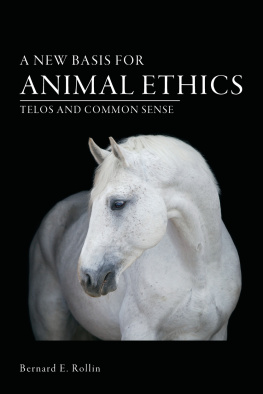
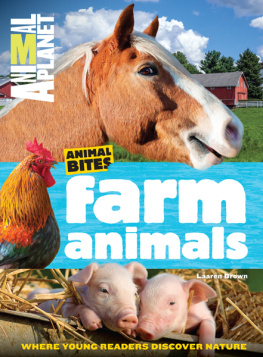
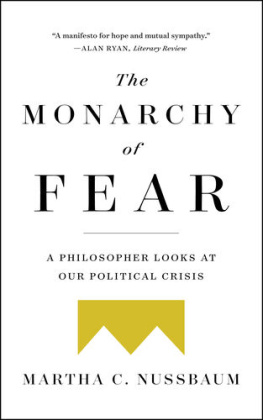

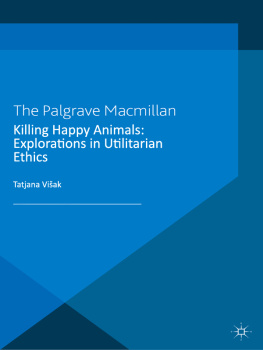
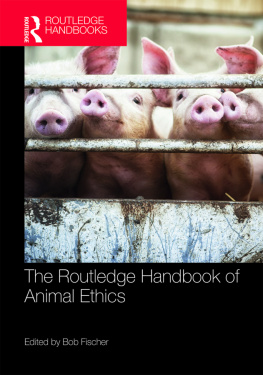
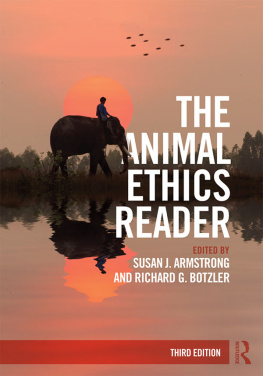
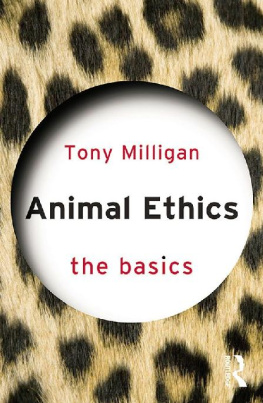
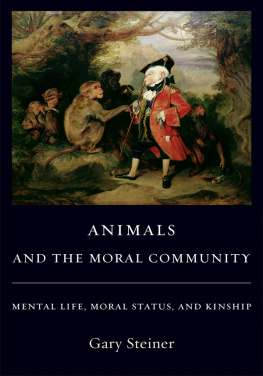
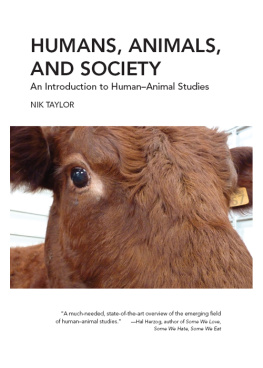
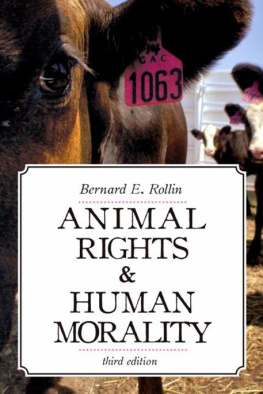
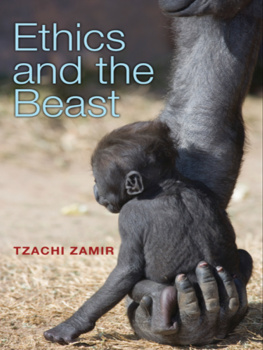

 This paper meets the requirements of the American National Standard for Permanence of Paper for Printed Library Materials, Z39.48, 1984.
This paper meets the requirements of the American National Standard for Permanence of Paper for Printed Library Materials, Z39.48, 1984.